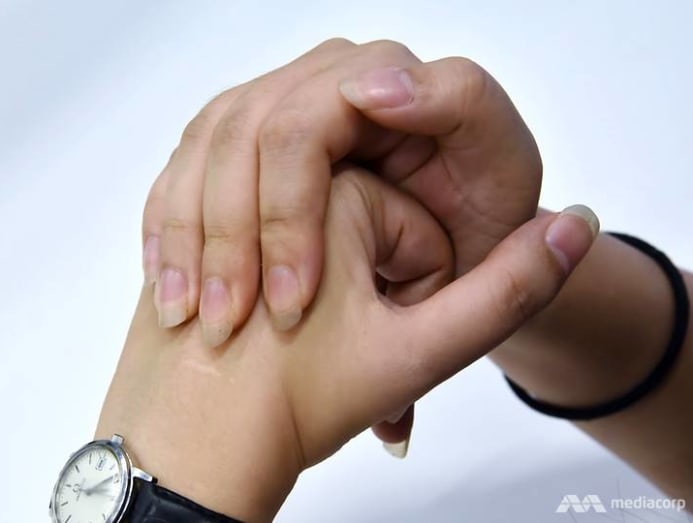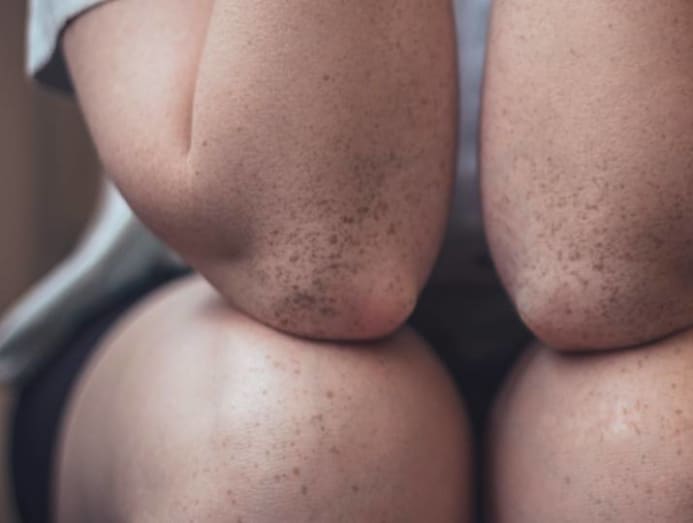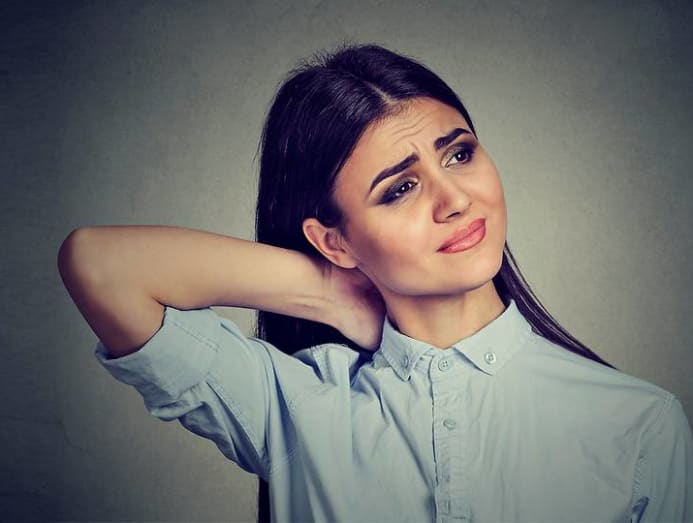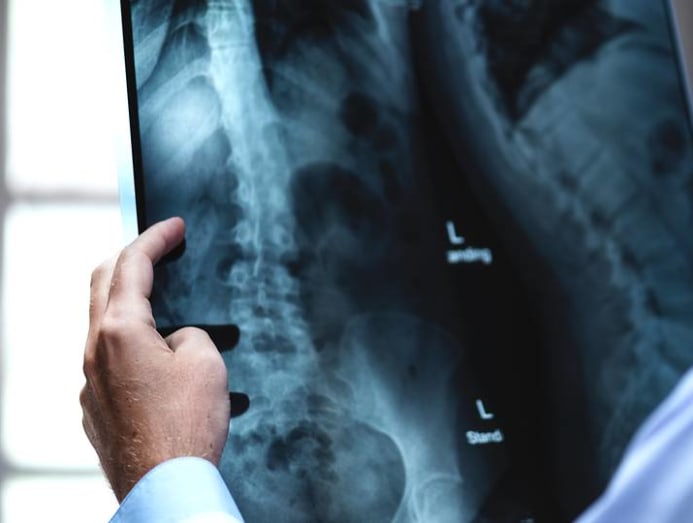Knuckle cracking: It's annoying to others but can it also cause arthritis?
If you’re trying to stop someone’s irritating knuckle-cracking habit, you’ll need a better reason than saying "you’re ruining your joints".

(Photo: Bigstock)
Cr-aaack! Hearing the sound of someone’s knuckles being popped either makes you want to crack yours too, or it just gives you the shudders. Sometimes, the snapping sound comes from your knee or hip, but you've not done anything other than get up from your seat.
So, what’s going on with your joints and why are they popping away? “Popping” would be the right word for it because the sound actually comes from air bubbles bursting in your joints, said Dr Soumen Das De, Associate Consultant with the Hand & Reconstructive Microsurgery Centre at National University Hospital.
Yes, there is naturally dissolved air in your joints, and when you crack them, you create a negative space that lets the dissolved air form bubbles, he explained. “This process typically happens within seconds. The joint cannot be cracked for several minutes afterwards because the air needs to re-accumulate in the joint space.”

The snapping sound can also be caused by a tendon sliding over a bony protrusion or excessive motion between bones, said Dr Das De.
WHY THE KNUCKLES?
You’d notice that many people, who crack their joints, tend to do it to their knuckles. What makes them so irresistible to manipulate?
“Knuckle cracking is a common behaviour enjoyed by many. It can become a habit or a way to deal with nervous energy; some describe it as a way to release tension,” said Dr Robert Shmerling on Harvard Health Publishing.
Furthermore, “the small joints of the hand, such as the knuckles or metacarpophalangeal joints, are easier to crack,” said Dr Das De. “Larger joints, such as the knee and elbow, require a considerable amount of force to generate the same degree of negative pressure.”

But having said that, there are individuals who derive satisfaction from cracking their backs.
WHAT’S THE DAMAGE?
Should you listen to your mother and abstain from cracking your joints? Happily, the answer is no, you don’t have to. (Sorry, Mum!) “There is no evidence that cracking a joint increases the risk of long-term degeneration and osteoarthritis,” said Dr Das De. The damage it can cause, though? Annoying the heck out of the people around you.
All that said, this does not give you the licence to pop your joints with abandonment. Ringo Yee, Principle Physiotherapist at Tan Tock Seng Hospital, said that injury to the soft tissue, ligaments or surrounding structures of the affected joint, such as blood vessels, is possible. “Typically, pain is the first common symptom. Other signs relating to soft tissue injury, such as swelling, may occur,” he said.
And if you’re constantly cracking a particular joint, such as your back, to ease the pain, you might be better off seeing a chiropractor instead. A study in the Journal Of The American Medical Association found that pain in the lower back is only momentarily relieved by cracking the back, and wouldn’t add up to any significant improvements.

It’s also not a good idea to be constantly cracking your neck, according to a Healthline article: “Cracking your neck too forcefully can pinch the nerves in your neck. Cracking your neck too hard can also strain the muscles around your joints and the joints themselves. When your muscles or joints become strained, moving your neck can feel like a chore."
The article also cautioned against overdoing the neck cracking as it can over-stretch your ligaments permanently, and increase your chances of developing osteoarthritis.
WHAT YOU SHOULD NEVER CRACK
According to Yee, getting your partner or colleague – unless he or she is medically trained – to crack your neck or back for you is a bad idea. “They may unknowingly exert too much force and cause pain. The possible injuries are ligament sprains, fractures and dislocations.”
That said, if you experience persistent pain, swelling, bruising and stiffness after a massage that involves cracking your neck and/or back, see a doctor immediately to rule out any injuries.

Individuals who have “joint osteoarthritis and recent bone, joint and/or soft tissue injuries (e.g. tendon, ligament) should refrain from this habit because there is a considerable risk of re-injury,” warned Dr Das De. “If you are recovering from an injury and are in doubt about cracking your joints, it is always prudent to check with your doctor.”
In fact, even the joint cracking that results from the manual therapy techniques used by physiotherapists should be avoided for certain individuals, said Yee. These include patients with fractures, tumours, infections, inflammation, or are on long-term steroidal use or anticoagulation medication.





